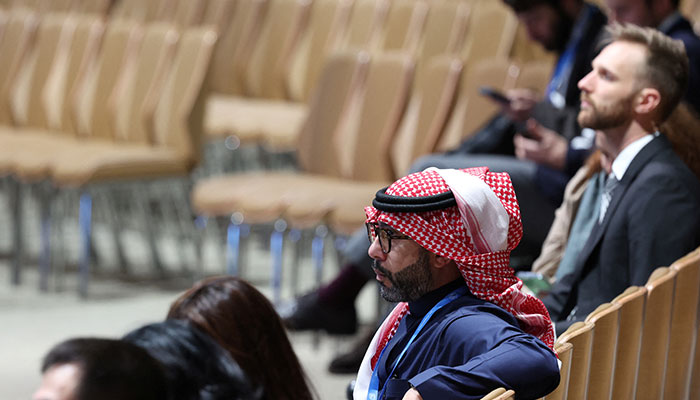
Marathon COP29 climate talks enter their final phase on Wednesday when the Azerbaijani hosts are set to publish an update on the negotiations so far as the summit seeks to agree a new target on issues including climate finance.
The talks, which began on November 11, are scheduled to end on Friday at 1400 GMT, but summits of the parties have a long history.
Here’s a breakdown of the known sticking points and what happens next:
Text projects
Officials spent the first week trying to agree deals across a range of different issues including financing, carbon markets, the future of fossil fuels and efforts to mitigate rising global temperatures.
Now the outstanding items have been handed over to ministers so they can use their political influence to try to reach cross-border agreements.
The next steps revolve around trying to reduce the draft texts containing a wide range of drafting options into a final document that can be adopted unanimously at the end of the summit.
Draft texts will be published periodically by the Azerbaijani Presidency as it focuses on reaching an acceptable agreement.
Climate finance target
The primary goal of COP29 is to agree on a new target on how much money should be provided to developing countries to help them adapt to climate-fueled disasters and transition to clean energy systems.
The previous goal of saving $100 billion annually ends in 2025. The new goal needs to save $1 trillion annually by the end of the decade, according to experts.
The focus in the negotiating rooms was on defining the structure of the new target, including what would count as climate finance and who should pay for it. Once this is agreed upon, the parties are expected to begin talking about the size of the target.
Among the issues we need to resolve are whether countries like China should be considered among the wealthiest major donors, and to what extent countries should provide funding in the form of grants or loans.
The text is scheduled to be published on Wednesday evening.
Fossil fuels
Countries have so far struggled to agree on the right path to follow up on last year’s summit agreement to transition from fossil fuels.
European countries want this commitment to be referred to in any agreement in Baku to reinforce the importance of following up with firm measures. Others, including the Arab group, believe that there is no need for this.
If previous COPs are anything to go by, the moment the text of any deal is published, delegates will search for the phrase “fossil fuels” to see if there is any sign of backing down.
Carbon markets
Talks in Baku began with early agreement on some quality standards that will govern the global market for carbon credits, but there is still much to be agreed, including how to track deals and disclosure rules.
If fully agreed, market watchers expect the UN-backed global market could finance billions of dollars in projects that reduce greenhouse gas emissions from projects such as reforestation.
The details are being intensely scrutinized amid concerns that without tight regulation, carbon credits may not deliver the benefits they claim.
Final hours
Cops rarely finish on time. The United Nations Climate Change Conference (COP28) in Dubai closed almost a full day after its initial deadline; The COP27 conference in Egypt lasted about 36 hours.
In the final hours, delegations consult intensively in private with the presidency on the proposed agreement, often overnight, looking for something that can be adopted unanimously.
Once this is completed, each country is called into the main hall to begin the formal approval process, which takes hours.
